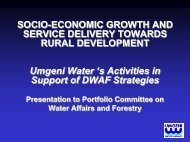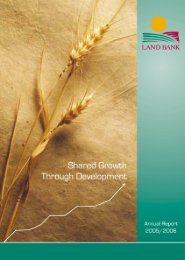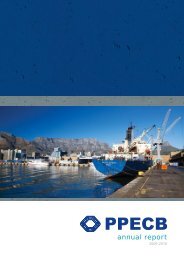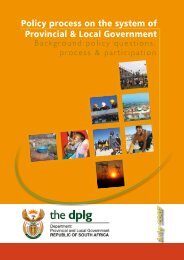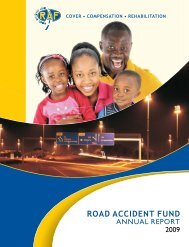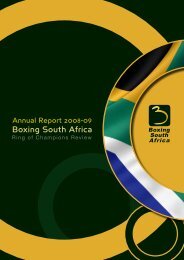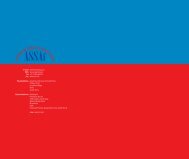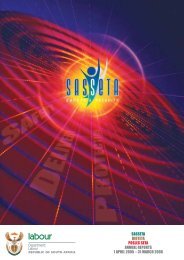Human Settlements Review - Parliamentary Monitoring Group
Human Settlements Review - Parliamentary Monitoring Group
Human Settlements Review - Parliamentary Monitoring Group
Create successful ePaper yourself
Turn your PDF publications into a flip-book with our unique Google optimized e-Paper software.
<strong>Human</strong> <strong>Settlements</strong> <strong>Review</strong>, Volume 1, Number 1, 2010<br />
phenomena does not mean that it is universal,<br />
it does not mean that all phenomena should be<br />
regarded in the same way (Kaplan, 2002:xiii).<br />
Vaclav Havel noted, in an address to the<br />
World Economic Forum many years ago, that<br />
“What is needed is something larger (than the<br />
scientific method). <strong>Human</strong>’s attitude in the<br />
world must be radically changed. We have to<br />
abandon the arrogant belief that the world is<br />
merely a puzzle to be solved, a machine with<br />
instructions for use waiting to be discovered…”<br />
(Havel as quoted in Kaplan 2002: xv)<br />
Abandoning the need to control and<br />
shape the world – acknowledging<br />
that we need new institutions<br />
There exist tremendous contradictions<br />
and incompatibilities. While global climate<br />
stability and ecological resilience are global<br />
public goods that require cooperative global<br />
solutions, fossil fuels are market goods that<br />
promote competition and resource struggles.<br />
The transition to sustainability requires new<br />
energy sources that are “non-rival”. Yet we<br />
have systems that give priority to private<br />
market goods and services at the expense<br />
of public goods. If societal goals shift from<br />
maximizing growth of the market economy<br />
to maximising sustainable human wellbeing<br />
we need new or different institutions to better<br />
serve these goals to broaden acceptance and<br />
credibility.<br />
In recent months there has been much talk of<br />
“redesigning capitalism” and a “new financial<br />
architecture” as evident in the title of the 2010<br />
State of the World report by the Worldwatch<br />
Institute for example “Tranfroming Cultures –<br />
From Consumerism to Sustainability.<br />
Certainly organizations and institutions that<br />
shape our world are increasingly revealing<br />
their inability to address the challenges of our<br />
time. These organization are experienced,<br />
both by those outside of them and those<br />
inside them, as driven by the need to control<br />
and shape the world rather than respond<br />
creatively to new impulses and needs. There<br />
is great need for creativity and innovation in<br />
the way we organize the world. An economic<br />
renewal tailored to the 21st century would<br />
establish institutions committed to fitting the<br />
human economy to Earth’s limited life-support<br />
capacity.<br />
According to the capitalist perspective the<br />
Earth is not seen as “capable of experience”<br />
because it is reduced to a service provider,<br />
not a living system. A “right” human-Earth<br />
relationship would recognize humans as part of<br />
an interdependent web of life on a finite planet.<br />
The economy must recognize the rights of the<br />
human poor and of millions of other species<br />
to their place in the sun. In a world awash in<br />
money, addressing poverty only with growth<br />
reflects a tragic lack of moral imagination.<br />
Indeed , in pushing for more “free” trade as it<br />
is currently understood, we would entrench an<br />
ongoing addiction to consumption, pursued in a<br />
manner that often ravages the bio-productivity<br />
of developing countries (Mofid, 2010).<br />
Logjam in legal Systems and<br />
governance regimes<br />
As the grip of climate change tightens, and<br />
other problems… we are discovering that<br />
present law is inadequate to protect present or<br />
136



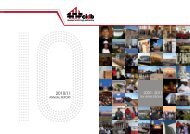
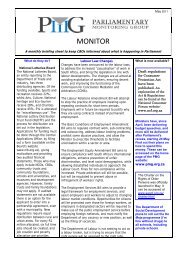
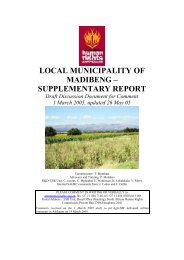
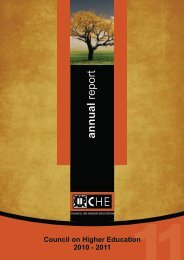
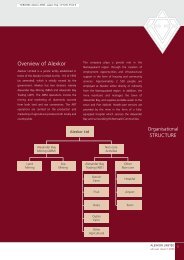
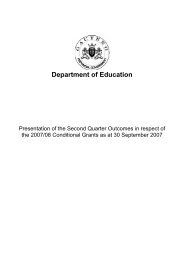
![National Research Foundation Annual Report 2008 / 2009 [Part 2]](https://img.yumpu.com/49774036/1/177x260/national-research-foundation-annual-report-2008-2009-part-2.jpg?quality=85)
